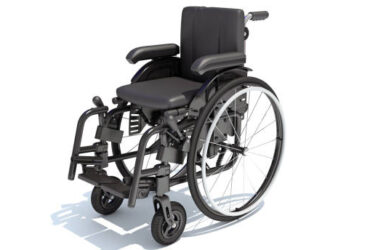Performance physical therapy is a specialized branch of physical therapy designed to enhance athletic performance, prevent injuries, and aid in recovery. Whether you’re a professional athlete or a fitness enthusiast, performance physical therapy can help you achieve your goals. On the other hand, shoulder pain physical therapy is crucial for those dealing with shoulder injuries or discomfort, offering targeted treatments to restore functionality and reduce pain.
What is Performance Physical Therapy?
Performance physical therapy focuses on optimizing physical performance through individualized treatment plans. This therapy is not only about rehabilitation but also about enhancing your overall athletic abilities. Techniques used in performance physical therapy include strength training, flexibility exercises, and sports-specific drills. These methods help in improving speed, agility, and endurance.
Benefits of Performance Physical Therapy
Engaging in performance physical therapy offers numerous benefits. It aids in the prevention of injuries by identifying and addressing potential weaknesses or imbalances. Additionally, it helps in quick recovery post-injury, allowing athletes to return to their sport faster and stronger. The therapy also enhances performance by improving muscle strength, flexibility, and cardiovascular fitness.
Addressing Shoulder Pain with Physical Therapy
Shoulder pain physical therapy is essential for individuals suffering from shoulder injuries or chronic pain. The shoulder is a complex joint that requires precise treatment to regain full functionality. Therapists use a combination of manual therapy, exercises, and modalities like ultrasound or electrical stimulation to treat shoulder issues effectively.
Common Shoulder Injuries Treated
Common conditions addressed in shoulder pain physical therapy include rotator cuff tears, frozen shoulder, and shoulder impingement. Each of these conditions requires a tailored treatment plan. For instance, rotator cuff therapy might focus on strengthening the muscles around the shoulder, while frozen shoulder treatment may emphasize increasing range of motion through gentle stretching and mobilization techniques.
Enhancing Athletic Performance
Athletes looking to enhance their performance can greatly benefit from performance physical therapy. This type of therapy focuses on improving overall body mechanics and strength, which translates to better performance in sports. Exercises are designed to enhance specific movements relevant to the athlete’s sport, thereby increasing efficiency and reducing the risk of injury.
Preventing Re-Injury with Physical Therapy
One of the key goals of performance physical therapy is to prevent re-injury. Through a detailed assessment, therapists can identify potential risk factors and address them before they lead to injury. This proactive approach ensures that athletes can maintain their peak performance without the interruption of frequent injuries.
Recovery from Shoulder Pain
Recovering from shoulder pain involves a structured shoulder pain physical therapy program. This program typically includes exercises to improve range of motion, strengthen the shoulder muscles, and reduce pain. Manual therapy techniques are also employed to break down scar tissue and improve flexibility. Regular sessions and adherence to the prescribed exercises are crucial for a successful recovery.
Conclusion
Performance physical therapy and shoulder pain physical therapy are essential components of maintaining and improving physical health and performance. By engaging in these specialized therapies, athletes and individuals alike can achieve their fitness goals, recover from injuries, and prevent future issues. Whether you’re looking to enhance your athletic performance or recover from shoulder pain, these therapies offer effective solutions tailored to your needs. Investing in your physical health through targeted therapy can lead to a more active, pain-free lifestyle.











